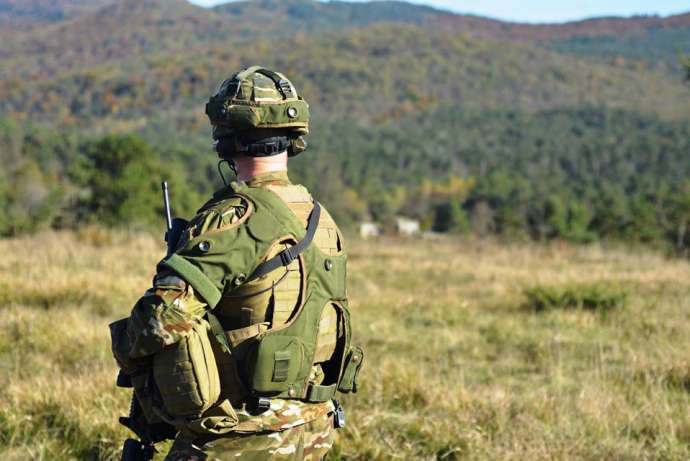STA, 15 April - The parties standing in the 24 April general election mostly support raising defence spending, stressing that it should also cover rescue and protection. But they have different views on what these funds should be invested in and what the main threats to Slovenia are.
Responding to STA questions about defence, most parties pointed to Slovenia's commitments to NATO regarding defence spending, agreeing that the Slovenian Armed Forces should have good work conditions and equipment. However, many parties would invest mostly into equipment that can also be used for civil purposes.
The Freedom Movement and the Alenka Bratušek Party (SAB) would give priority to such investments. The Freedom Movement would also strive to pick Slovenian suppliers. The Marjan Šarec List (LMŠ) too would opt for capabilities that can also be used in rescue and protection and against hybrid threats. It would stop the procurement of the 8x8 armoured vehicles.
Connecting Slovenia would purchase multi-purpose helicopters and tow trucks. Resni.ca would stop the purchase of "expensive tanks that are more or less intended for missions abroad".
The Social Democrats (SD) believe the energy and funds should be redirected towards cyber and air defence and strengthening of defence against hybrid threats.
The Democrats (SDS) advocate for consistent implementation of defence goals and commitments to NATO, EU and the UN, stressing that the army also has a big role in dealing with natural and other disasters. "Strengthening the defence power of the state and in particular the capabilities of the national system of cyber defence is vital in these times."
Meanwhile, the green party Vesna calls for a modern system of rescue and assistance, funded from the defence budget. The party would also develop stronger medical units within the army and invest in the food and energy security. With this in view, it would thoroughly review the planned investments in the army.
The National Party (SNS) would first change the concept of defence and only then secure funding, while the Left, Boris Popovič List - Digitalise Slovenia, Our Future and Good State, and the Pirate Party oppose raising defence spending.
Parties assert that Slovenia is not at risk in the military sense but are aware that the Ukraine war affects the sense of security, also in terms of the quality of life.
Their opinions on what are the main threats to Slovenia's security at the moment vary. The Freedom Movement pointed to the war in Ukraine, which "affects the sense of security among our citizens", and the SDS stressed the importance of cyber defence.
The LMŠ warned against provocations by the "ruling politicians" to keep Slovenia's security risks low. The Ukraine war has shown NATO is a guarantee of security for its members, the party said.
The SD listed hybrid threats, cyber threats, terrorism, violent extremism and organised crime. It also warned against destabilisation in the Western Balkans.
The Left thinks the biggest threat is the imperialist policy of "the so-called allies", which it believes is the main source of conflict and instability in the world.
Home League warns against foreigners who arrive in the country illegally, Resni.ca thinks the main threat is the prime minister's Twitter account. The Pirate Party sees the current government as the biggest threat.
Vesna thinks the biggest threats are the low food self-sufficiency, fragile health system, growing social differences, lack of solidarity, the possibility of cyber attacks, and corruption and crime.
The SNS thinks the biggest threat is NATO, "as due to America's extortion Slovenia will pay significantly higher prices for energy, food, industrial products".
Most parties oppose reintroduction of conscription. Only the SNS and Homeland League expressed strong support to the idea, while several other parties left this topic open for debate, as most believe a broad social consensus should be reached.
One of the first moves by any new government are usually replacements of top officials in the national intelligence agency SOVA and the police and then also in the army. In particular parties that are not in the government said they too would make staffing changes to hire professional and apolitical staff. The need for competent and apolitical top officials in these structures was also highlighted by the coalition parties.






